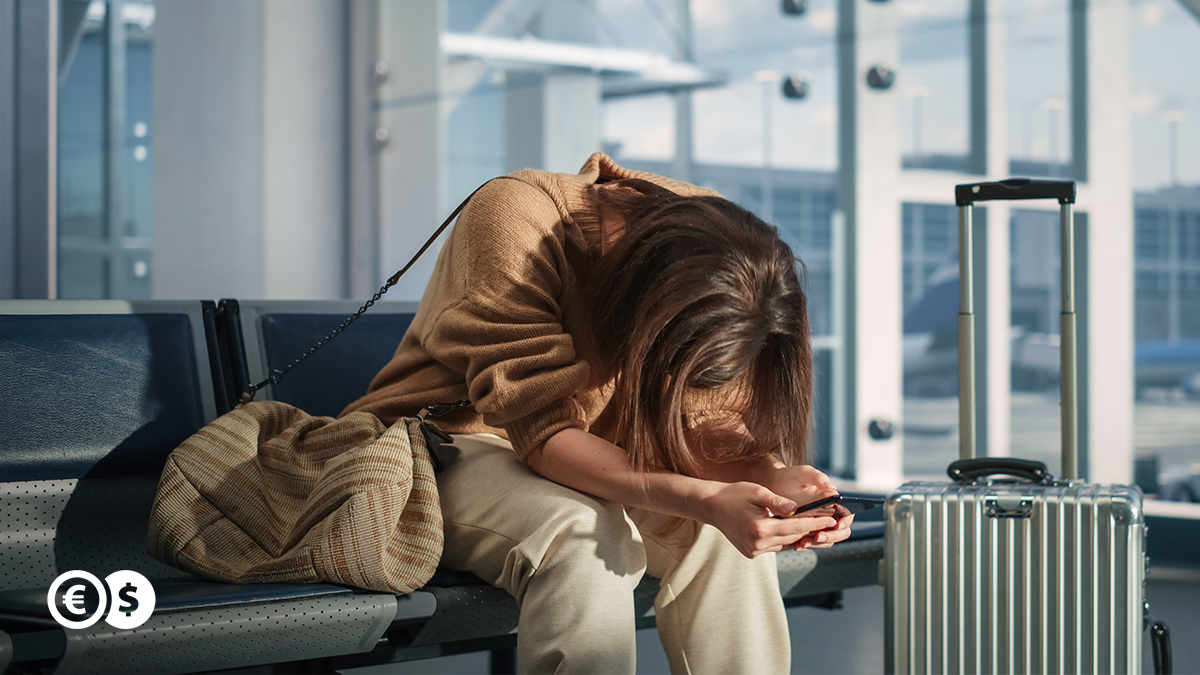A lovely guesthouse with spectacular mountain views, a sharply discounted last-minute offer for a week's stay under the palm trees, or a cheap flat close to the centre of a historic city are some of the phishing slogans that scammers can use to lure tourists online. Before the start of the winter holiday season, it is worth knowing what to look out for when booking accommodation.

False tourist offer
A tourist from Poland went to a mountain resort. She found a room at a bargain price on a website. She paid the deposit as instructed. However, it turned out on the spot that she had been conned. The address she sought only existed virtually, and the online ad quickly disappeared. The victim reported the incident to the police, but immediately afterwards, she sat down with her smartphone and booked another accommodation in the exact location, again transferring the deposit. Although it is hard to believe, she had once again been duped by the fake website of a non-existent guesthouse. This story actually happened over the Christmas and New Year period, a time of increased tourism and demand for accommodation. Similar pitfalls can await travellers during the winter holidays when many plan holidays in the mountains or some warm destinations.
"Caution pays off. A deposit may never be returned. Unfortunately, the victims are not only gullible and absent-minded, and it is not always easy to tell the difference between genuine and fraudulent offers. Fraudsters not only pretend to be private accommodation owners but also create fake travel agency websites, illegally copying the tour operator's trademarks and styling," points out Robert Blaszczyk, Head of the Strategic Clients Department at Conotoxia.
Pros and cons of travel intermediaries
One way to reduce the risk of fraud is to use branded websites that offer group accommodation from different parts of the world. Although attempts to defraud people of their details or money may occur, they are relatively rare. Disclosure of details and card numbers from which funds are to be collected should be limited to the official website or app of the service, so that a refund can be requested in the event of fraud.
The disadvantage of this solution may be the price, which is slightly higher than what we could negotiate directly with the owner of the property. Nevertheless, with the potential extra charge, we buy peace of mind and security for ourselves.
Get in touch, take a look at Google maps, use the search engine
Whether you are using a branded accommodation service or trying to contact the owner of a property, for example, once you have chosen an offer, do not just click through to book and send the money. Before doing so, it is always important to find out contact details - address, phone number, email, social media profile. You can use any excuse to ask the manager about parking, whether you can take your dog with you, whether you can extend your stay, etc. Above all, you want to find out whether the other side will answer your questions at all. However, the answer alone cannot fully guarantee the partner's trustworthiness. Until the goal is reached, i.e. the extortion of money or sensitive data, the scammer can, with exemplary politeness, deceive their victims with visions of a dream holiday.
This is why we should dig deeper. It is enough to enter the name of the chosen facility in an Internet search engine and look for the opinions of other users. Their absence can be taken as a red flag.
"Google Maps allows us to check whether the location on a website corresponds to reality. In many countries, it is possible to confront photos of the venue on Google Street View. It is also worth looking for information about a particular tour operator on the websites of national tourist organisations. In the UK, for example, this is VisitBritain; in France, it is Atout France and in Australia, it is Tourism Accommodation Australia (TAA)," adds a Conotoxia expert.

A double check - always a good idea
Even if the guesthouse website, for example, does not raise any objections - there are contact details and guest reviews, it seems reasonable to try to reach the same facility from another website. If the same information (e.g. regarding the address) can be found on the official website of the town where the chosen guesthouse should be located or on other portals describing tourist attractions and accommodation in the region, then the offer can be approached with more confidence.
Stay free of commissions and unfavourable currency conversion
Any payment links should trigger our extra vigilance when finalising a booking. These could conceal attempts to defraud us of our data or money. Choose payment methods on your own terms. Due to the potential risk of fraud, it is advisable to use Visa and MasterCard credit cards, which have a chargeback guarantee.
"When looking for an offer abroad, where a currency other than the one we use usually applies, but also for domestic trips, we can use a multi-currency card, for example, from Conotoxia. Thanks to it, you can pay in euros, dollars, Czech koruna, forints, Turkish lira, Swiss francs and many other currencies from all over the world without worrying about commissions or unfavourable currency conversion rates. Moreover, the Conotoxia multi-currency card can be topped up only with the amount which we expect to pay for the booking of accommodation, thus freeing ourselves from the concern that in the case of a misfortune, an impostor may get hold of a larger sum of our savings," summarises Robert Baszczyk from Conotoxia.
The Conotoxia multi-currency card, which is continuously topped up with any amount of money, can also be used for payments in shops, restaurants, car or sports equipment rentals and for cash withdrawals from ATMs abroad.



